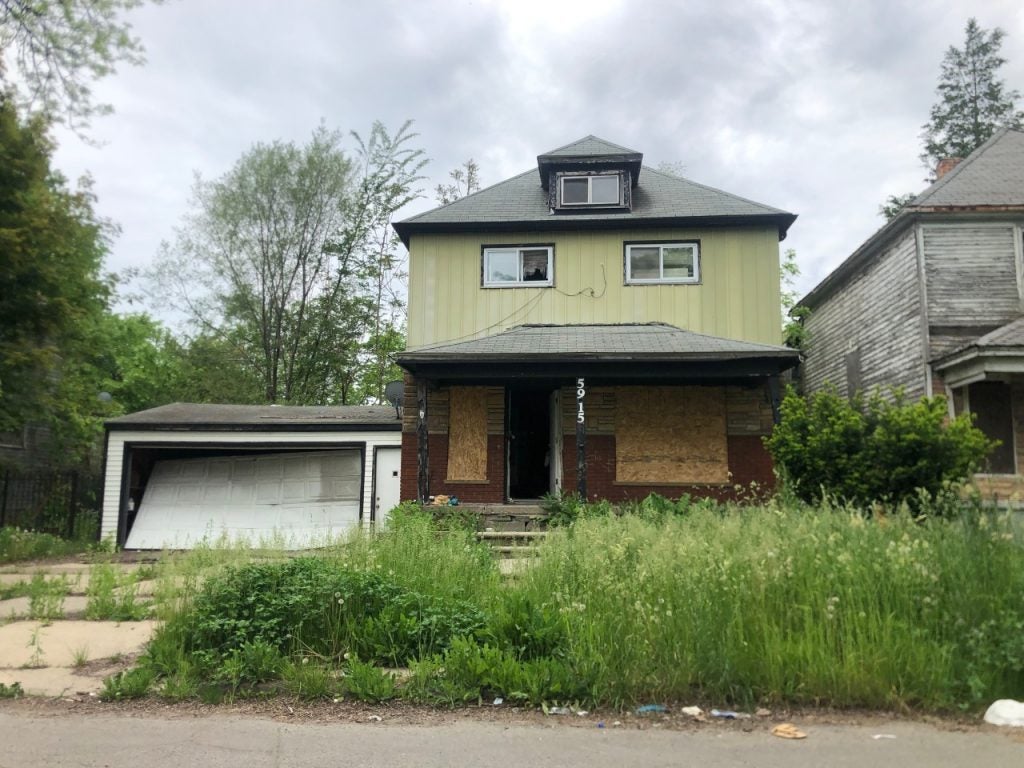Title: Questions raised over Detroit’s ability to hold landlords accountable for properties left blighted
URL: www.wxyz.com/news/local-news/investigations/detroits-decision-to-drop-speculator-suit-raises-questions
When I searched for “Detroit news” in Google, it was serendipitous to see this article just published today come up as one of the top results, not because the content is particularly encouraging, but because it’s on gentrification, speculation, and urban blight—topics discussed in How to Kill a City. To summarize, the city of Detroit filed “invest-and-neglect” lawsuits against four landowners who have bought up many foreclosed properties across Detroit and allowed them to fall into disrepair. This article highlighted Sam Jaser, an owner of more than 350 properties in Detroit. Jaser, claiming “I want to be a part of rebuilding Detroit. I want to be a part of it aesthetically, socially. I want to be the guy that you guys can say: Hey, here’s the role model landlord,” appears to just be a speculator, hoping to take advantage of a surging Detroit real estate market. For now, though some of his properties are occupied, many are blighted. The article interviewed the neighbors of one of his properties. They take great pride in keeping their own home nicely maintained, but feel that Jaser’s property makes them look bad—they even mow the property’s lawn when things get out of hand. Anyway, ultimately the city of Detroit dropped the charges against Jaser, giving him more time to come to compliance with city code without formally binding him to a new set of stipulations.
Why is the city sympathetic to these invest-and-neglect large-scale property owners? This is a case of speculation. This hurts the many, many powerless neighbors of Jaser properties by making their neighbors dangerous and in disrepair. What does the city of Detroit have to gain? Why not protect the people of Detroit? Why enable the speculation of a wealthy outsider? Why drop the case? It feels like shady business to me.
As Moskowitz suggests in the conclusion of How to Kill a City, one solution is the expansion and protection of public property. Detroit could claim this property, but then what? Does the city have the resources to demolish all these blighted homes? No clue, but I think it’s unlikely. And if they did, then what? As I unpack this, I think I’m coming to understand why Detroit is indifferent or even supportive of people like Jaser (although it’s also very possible I have no idea what I’m talking about)—there’s hope that he’ll be able to do more with the property than the city can. This hope hasn’t come to fruition yet, and it doesn’t seem like it will any time soon. But what’s a better solution than holding onto this hope, trying to coax Jaser and others into fixing things up? There very well might be, but I can’t think of any groups with both the resources and the good intent. This is something I’ll be looking more into.




Another point from How To Kill A City is that as the houses become more and more neglected, their value decreases – while the properties increase in value (due to gentrification). This landlord can buy up these properties, not take care of them, and make a profit to developers who pay a high price for soon to be gentrified property. The city can then make money off of these developers.